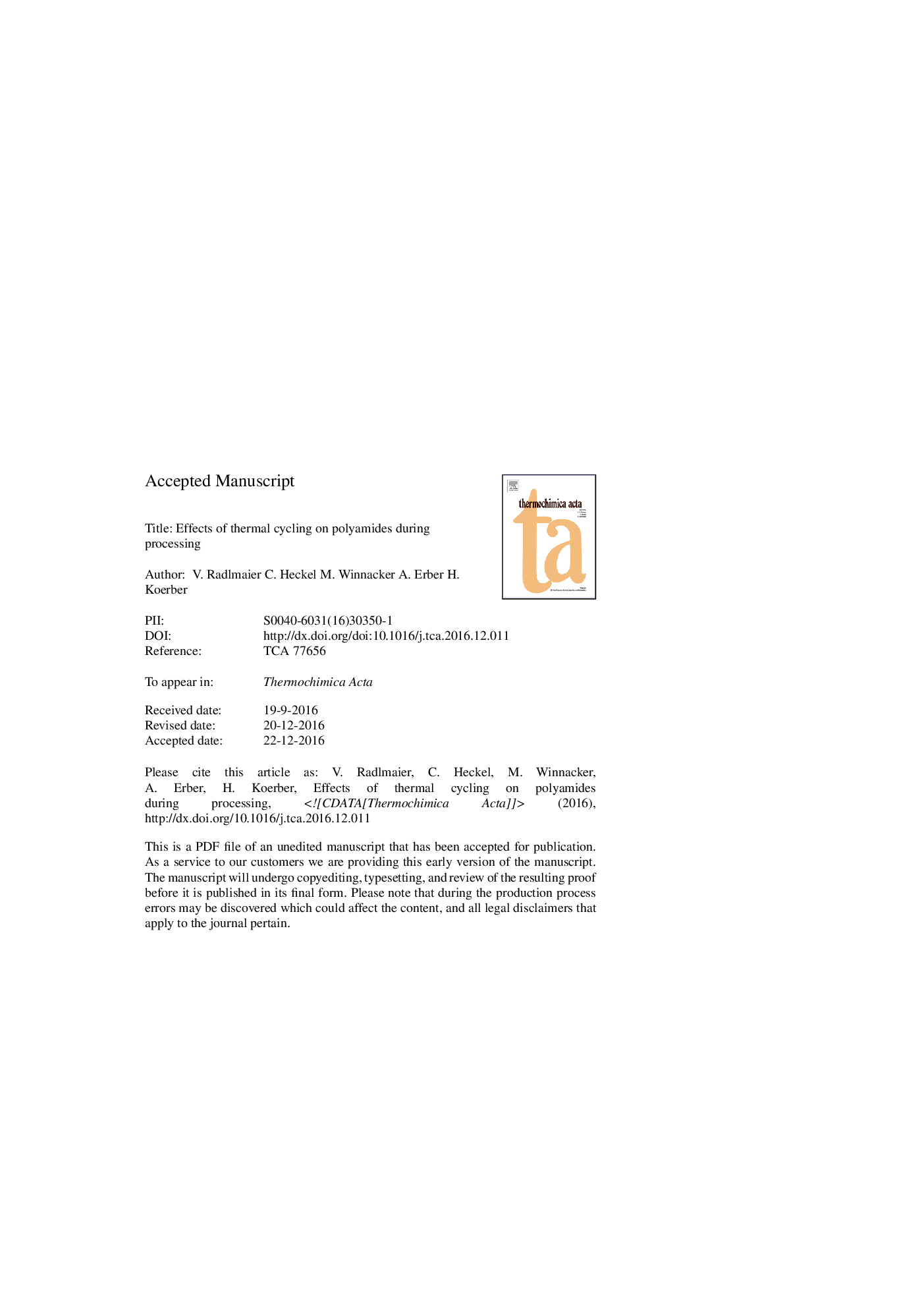| Article ID | Journal | Published Year | Pages | File Type |
|---|---|---|---|---|
| 4996033 | Thermochimica Acta | 2017 | 26 Pages |
Abstract
Subjecting polymers to elevated temperatures as well as extended exposure times can significantly increase the melt viscosity and prevent impregnation progress of carbon fiber reinforced thermoplastics (CFRTP). In this study, a polyamide 6 (PA6) and a copolyamide (PA10T/X) were subjected to repeated heating cycles (thermal cycling) derived from CFRTP production processes. Differential scanning calorimetry (DSC), thermogravimetric analysis (TGA) and gel permeation chromatography (GPC) served to generate thermal cycling and to analyze the effects on both polyamides. Decreasing melting temperatures, increased mass losses and lower molar masses measured after long exposure in the presence of oxygen indicate a strong tendency to thermo-oxidative degradation for both polymers. Adding an antioxidant reduced the extent of thermo-oxidative degradation but revealed decreased efficiency with increasing dwell times. Drastic increases in viscosity detected by rheometry illustrate the influence of thermal cycling on processing behavior. The start of the viscosity increase was determined and led to the identification of processing windows for both polyamides. These are used to ensure impregnation progress during the production of CFRTP by maintaining initial polymer properties.
Related Topics
Physical Sciences and Engineering
Chemical Engineering
Fluid Flow and Transfer Processes
Authors
V. Radlmaier, C. Heckel, M. Winnacker, A. Erber, H. Koerber,
